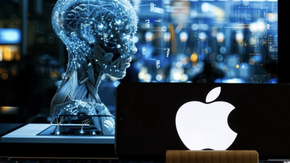Tim Cook répond au FBI "Le gouvernement nous demande de hacker nos propres clients"
Par Didier Pulicani - Publié le
Dans une lettre ouverte publiée sur le site d'Apple, Tim Cook estime ce matin que le gouvernement crée un
précédent dangereuxet menace
la sécurité des clientsen demandant désormais l'introduction d'une
porte dérobéesur ses iPhone.
Cook détaille tout d'abord la manière dont Apple a aidé le FBI à essayer de déverrouiller l'iPhone du criminel en question.
Nous avons travaillé avec les autorités pour essayer de résoudre cet abominable crimeprécise le PDG qui précise n'avoir
aucune sympathie pour les terroristes. Malheureusement, le FBI n'est pas parvenu à accéder aux données du téléphone et a demandé à Apple de développer une
version spécifique d'iOSque l'on pourrait installer sur l'appareil et qui serait capable de débloquer le téléphone. Une telle version est-elle vraiment envisageable ? En lisant entre les lignes, le CEO d'Apple ne le nie pas forcément, mais invoque surtout la dangerosité du système.
Pour Tim Cook, c'était surtout la demande de trop
cela revient à créer une porte dérobéedéclare-t-il tout en précisant que
si le gouvernement estime qu'il sera utilisé dans un nombre limité de cas, il n'y a aucun moyen de garantir un tel contrôle. Le FBI a également exigé d'Apple qu'elle mette à disposition un système électronique capable d'entrer des codes rapidement, sans bloquer le téléphone
pour mettre en place du bruteforce. Là encore, Cook estime que ce type de manipulation rendrait les iPhone bien trop facilement accessibles.
Le reste de cette lettre ouverte consiste en un véritable réquisitoire publique contre le déblocage des données personnelles, un système qui ne peut profiter seulement aux
gentils, selon Cook. Ce dernier estime d'ailleurs que si les autorités avaient accès à ces portes dérobées, elles pourraient notamment
demander à Apple d'intercepter vos messages, d'accéder à vos données de santé, vos données financières, de traquer votre position ou encore accéder au micro et à la caméra du téléphone sans votre consentement.
The United States government has demanded that Apple take an unprecedented step which threatens the security of our customers. We oppose this order, which has implications far beyond the legal case at hand.
This moment calls for public discussion, and we want our customers and people around the country to understand what is at stake.
The Need for Encryption
Smartphones, led by iPhone, have become an essential part of our lives. People use them to store an incredible amount of personal information, from our private conversations to our photos, our music, our notes, our calendars and contacts, our financial information and health data, even where we have been and where we are going.
All that information needs to be protected from hackers and criminals who want to access it, steal it, and use it without our knowledge or permission. Customers expect Apple and other technology companies to do everything in our power to protect their personal information, and at Apple we are deeply committed to safeguarding their data.
Compromising the security of our personal information can ultimately put our personal safety at risk. That is why encryption has become so important to all of us.
For many years, we have used encryption to protect our customers’ personal data because we believe it’s the only way to keep their information safe. We have even put that data out of our own reach, because we believe the contents of your iPhone are none of our business.
The San Bernardino Case
We were shocked and outraged by the deadly act of terrorism in San Bernardino last December. We mourn the loss of life and want justice for all those whose lives were affected. The FBI asked us for help in the days following the attack, and we have worked hard to support the government’s efforts to solve this horrible crime. We have no sympathy for terrorists.
When the FBI has requested data that’s in our possession, we have provided it. Apple complies with valid subpoenas and search warrants, as we have in the San Bernardino case. We have also made Apple engineers available to advise the FBI, and we’ve offered our best ideas on a number of investigative options at their disposal.
We have great respect for the professionals at the FBI, and we believe their intentions are good. Up to this point, we have done everything that is both within our power and within the law to help them. But now the U.S. government has asked us for something we simply do not have, and something we consider too dangerous to create. They have asked us to build a backdoor to the iPhone.
Specifically, the FBI wants us to make a new version of the iPhone operating system, circumventing several important security features, and install it on an iPhone recovered during the investigation. In the wrong hands, this software — which does not exist today — would have the potential to unlock any iPhone in someone’s physical possession.
The FBI may use different words to describe this tool, but make no mistake: Building a version of iOS that bypasses security in this way would undeniably create a backdoor. And while the government may argue that its use would be limited to this case, there is no way to guarantee such control.
The Threat to Data Security
Some would argue that building a backdoor for just one iPhone is a simple, clean-cut solution. But it ignores both the basics of digital security and the significance of what the government is demanding in this case.
In today’s digital world, the “key” to an encrypted system is a piece of information that unlocks the data, and it is only as secure as the protections around it. Once the information is known, or a way to bypass the code is revealed, the encryption can be defeated by anyone with that knowledge.
The government suggests this tool could only be used once, on one phone. But that’s simply not true. Once created, the technique could be used over and over again, on any number of devices. In the physical world, it would be the equivalent of a master key, capable of opening hundreds of millions of locks — from restaurants and banks to stores and homes. No reasonable person would find that acceptable.
The government is asking Apple to hack our own users and undermine decades of security advancements that protect our customers — including tens of millions of American citizens — from sophisticated hackers and cybercriminals. The same engineers who built strong encryption into the iPhone to protect our users would, ironically, be ordered to weaken those protections and make our users less safe.
We can find no precedent for an American company being forced to expose its customers to a greater risk of attack. For years, cryptologists and national security experts have been warning against weakening encryption. Doing so would hurt only the well-meaning and law-abiding citizens who rely on companies like Apple to protect their data. Criminals and bad actors will still encrypt, using tools that are readily available to them.
A Dangerous Precedent
Rather than asking for legislative action through Congress, the FBI is proposing an unprecedented use of the All Writs Act of 1789 to justify an expansion of its authority.
The government would have us remove security features and add new capabilities to the operating system, allowing a passcode to be input electronically. This would make it easier to unlock an iPhone by “brute force,” trying thousands or millions of combinations with the speed of a modern computer.
The implications of the government’s demands are chilling. If the government can use the All Writs Act to make it easier to unlock your iPhone, it would have the power to reach into anyone’s device to capture their data. The government could extend this breach of privacy and demand that Apple build surveillance software to intercept your messages, access your health records or financial data, track your location, or even access your phone’s microphone or camera without your knowledge.
Opposing this order is not something we take lightly. We feel we must speak up in the face of what we see as an overreach by the U.S. government.
We are challenging the FBI’s demands with the deepest respect for American democracy and a love of our country. We believe it would be in the best interest of everyone to step back and consider the implications.
While we believe the FBI’s intentions are good, it would be wrong for the government to force us to build a backdoor into our products. And ultimately, we fear that this demand would undermine the very freedoms and liberty our government is meant to protect.
Tim Cook





